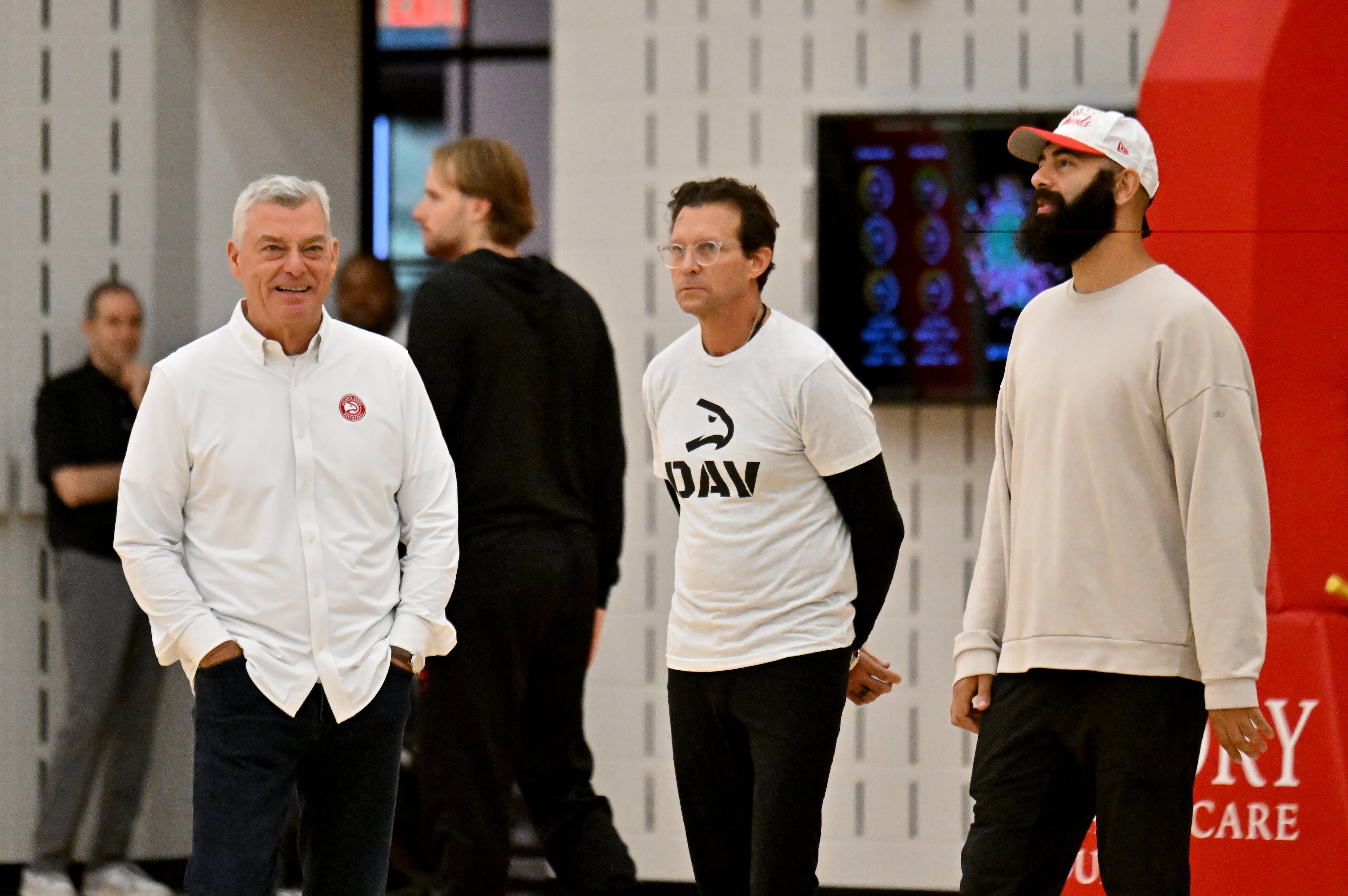Wall or not, Hawks have to do some climbing
If the Hawks are going to turn down the noise created by the fact they haven’t won a second-round playoff series since moving to Atlanta, they may need ear plugs.
It’s going to be brutally loud Saturday and Monday in Washington, and they need to win at least once in the Verizon Center to retrieve home-court edge.
Jeff Teague and company may want to keep their eyes open, too, and pay attention to who plays point guard for the Wizards.
Despite all that the Hawks and coach Mike Budenholzer said about not changing their defensive game plan if Wall does not play in Game 3 on Saturday afternoon, there will be differences if Ramon Sessions is running the show.
First, though, there will be all that noise, noise, noise as Washington is jacked up over its Wizards and the NHL’s Capitals, and the Hawks need to have their heads right to break a 1-1 series tie.
“In the playoffs … arenas are more amped. The crowd is going to play a huge factor, so you really have to have a strong mentality,” guard Kyle Korver said. “You’ve got to believe in your game plan, and stick to it even if things don’t go the way you want them to in the beginning.”
The absence of Wall, who suffered five non-displaced fractures in his left wrist and hand in Game 1 and did not play in Game 2, took a while to show up.
Sure, Sessions was fine as a scorer in Wall’s spot with 21 points, but he added only four assists.
Washington officials have not said yet whether Wall will play in Game 3, or at all in the postseason, but there’s no mystery about this: Sessions doesn’t help his teammates score nearly the same way.
Wall leads all NBA players while averaging 12.6 assists per playoff game (Teague is second, 7.8), and Washington has averaged 115.7 points per 100 possessions in the playoffs with Wall on the floor, and 96 without him.
The Hawks are leading the playoffs with 64 points created per assist. Washington is No. 2 (59.8) and Wall is more than half that, creating 30.8 points per assist.
The Clippers’ Blake Griffin and the Mavericks’ J.J. Barea are a distant second (18.8), while Teague is fifth (18.2 while playing six fewer minutes per game than Wall and making nearly 23 fewer passes per game).
Budenholzer said that the Hawks will stick to their plan rather than re-balance their defense.
“They have different ways that they can score and attack you,” the coach said. “It’s not that limiting Wall or Sessions is not a priority, but they can rack up the assists and get everybody involved.”
Sessions averaged 3.1 assists per game during the regular season. He’s a more natural jump shooter.
Despite Wall’s reputation as an attacker (most of his highlights come on full-court blitzes), the Wizards are driving less than every team in the playoffs, just 19.8 times per game putting the ball on the floor from outside 20 feet and dribbling to within at least 10.
The Wizards, though, lead all teams with 33.3 points per playoff game on catch-and-shoot baskets, and they’re No. 1 in catch-and-shoot 3-pointers made (9.3 per game, just ahead of the Hawks’ 8.8).
So, if Budenholzer is into numbers, he will have the Hawks rarely over play the Wizards’ primary ballhandlers regardless of whom and let Wall’s absence do the subtraction if he does not play. Don’t concede the catch-and-shoot, either way.
The Hawks have had time to get those ear plugs, too, and not worry too much about who plays point guard.
“We’re not setting as many screens as we need to, or being physical, or countering or going to our next options,” Millsap said. “Those are the things we’re working at. Try to get this first one, see what happens, try to get the second one …
“We know their fans are going to be involved. That’s why it’s important for us to come out and be physical.”


